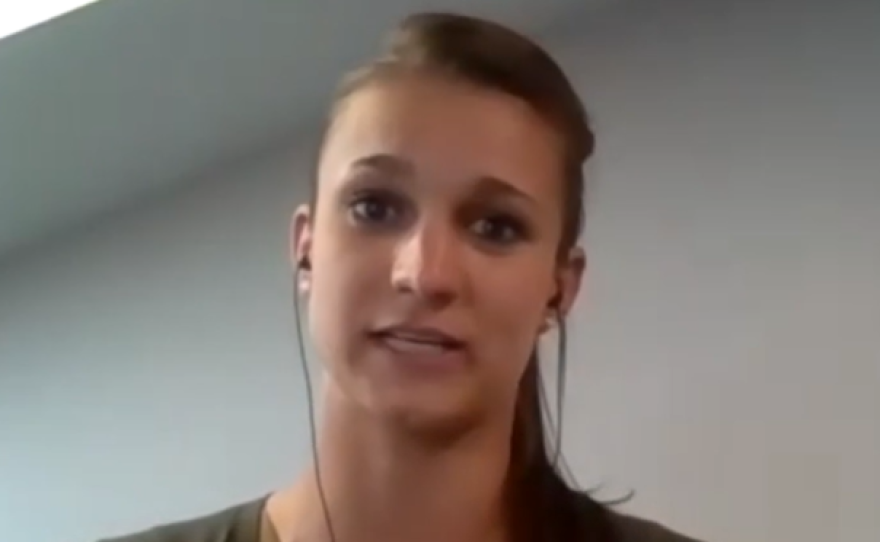People experiencing mental illness and substance-use disorders are overrepresented in jail, according to the Massachusetts Department of Mental Health, and a full-time clinician is now supporting Barnstable police to help prevent certain arrests under a state grant.
Stephanie Rubel is a Bay Cove Human Services employee and this month began responding with officers to mental health-related calls. The civilian position is funded through the Department of Mental Health's Jail and Arrest Diversion grant program. The Barnstable Police Department has also worked with a part-time clinician, Justine Podurgiel, since last year.
Rubel has served as an emergency-room technician for Cape Cod Healthcare and an instructional assistant with Barnstable public schools. She holds degrees in psychology and forensic psychology.
Rubel spoke to Morning Edition's Patrick Flanary about her new role.
Patrick Flanary: Walk us through a mental-health related call you've responded to.
Stephanie Rubel: The calls can certainly vary. And, without getting specific, essentially it's assessing the need for an individual and then helping them find resources for what they need. It might look like assisting them with finding mental-health programs, housing, mental-health providers and medication. If there is concern for the individual's immediate safety, I would facilitate getting the individual to a hospital for further treatment.
PF: You may go to a house or a scene, and you don't really know what you're going to find.
SR: Correct. I am out with an officer during my whole shift. We're responding together, and I don't necessarily know what we're going into. But with this co-response model, we do see a lot of the same individuals. Our goal is to divert these individuals from going to the emergency room or being arrested if they don't need to be.
PF: I imagine a lot of sensitivity is required of a clinician on-scene. You don't know what you'll find or who you'll encounter.
SR: I trust the police officers that I'm with, so if I feel like it's unsafe for me to be out of the cruiser I will certainly stay in. Once the officer or officers are able to calm them down to a certain point to where I can feel safe going out, then I will certainly do so and try to de-escalate them. That can, depending on the person and the situation, completely vary. A big part of it is reading somebody's body language, too.
PF: How does somebody typically respond when they see a police officer, and then they see you?
SR: It depends on the person, it depends on what's going on. They're a little more receptive, but that all depends on the situation. Sometimes people just don't want to talk.
PF: You've worked as an emergency-room technician and instructional assistant with the public schools. How have those roles informed how you approach the public in your new capacity?
SR: My experience with crisis work has allowed me to be able to have the expertise to work with the police department. Going out on all these community calls helps not just with the de-escalation part but also with helping people with the different resources they may need.
PF: Do you see the assistance of a clinician as the future of policing?
SR: I do. We're seeing so much more of this community policing. So being able to help these people navigate the community and their resources is not only going to help keep the individual out of a hospital or being arrested, but also help this gap that we're seeing with the community versus police. Getting a clinician in there and really trying to have more of a neutral stance I think will benefit not just the community but the police departments as well.
PF: How do you prepare to de-escalate a situation?
SR: A lot of training and experience in general. In the grand scheme of things we don't really know what we're walking into. Having that mindset and trying to remain neutral, to not get our guard up. Because people are very smart and as we're reading them, they're reading us.









